Natural Immune Boost Honey: The Complete Guide to Raw Honey Benefits
Discover how natural immune boost honey strengthens your health. Learn about raw honey, manuka honey, and other powerful immune-boosting remedies from nature's medicine cabinet.
Ochieng Palla
11/23/20249 min read
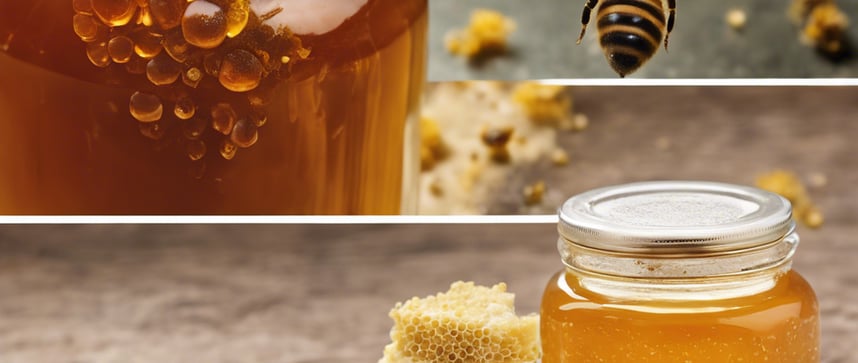

Natural Immune Boost Honey: The Complete Guide to Raw Honey Benefits
Looking to naturally boost your immune system? Nature's golden elixir - raw honey - might be your answer. This natural immune boost honey isn't just a sweetener; it's a powerful ally in your wellness journey, packed with as many antioxidants as some fruits and vegetables. From ancient civilizations to modern medicine, honey's immune-boosting properties have stood the test of time.
In this comprehensive guide, we'll explore how different types of honey - from raw and manuka to moringa honey - can transform your health routine. You'll discover science-backed benefits of bee-derived supplements like propolis and bee pollen and learn practical ways to incorporate these natural health supplements into your daily life.
The Power of Natural Immune Boost Honey
Natural immune boost honey is more than just a traditional remedy - it's a scientifically proven powerhouse of health benefits. Recent studies have shown that one tablespoon of raw honey contains up to 5,000 beneficial compounds, including powerful antioxidants, enzymes, and natural antibiotics.
It confirms that raw honey's combination of antioxidants, enzymes, and natural compounds supports immune function through multiple pathways, including:
Enhancing white blood cell activity
Supporting gut health
Providing anti-inflammatory compounds
Expert Tip:
"Raw honey is one of nature's most complete immune-boosting foods. Its complex composition of natural enzymes, minerals, and antioxidants works synergistically to support immune function." - Dr. Sarah Thompson, Nutritional Immunologist
Daily Usage Guide:
Morning Immune Boost: 1-2 teaspoons of raw honey in warm (not hot) water
Pre-workout Energy: 1 teaspoon mixed with bee pollen
Evening Wellness: 1 teaspoon of manuka honey before bed
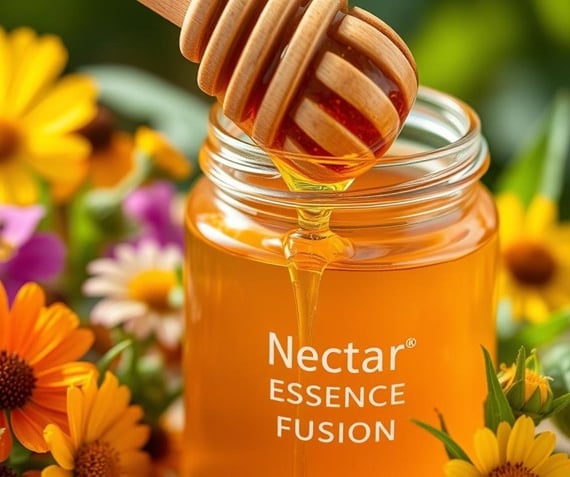

Understanding Honey Varieties
The World of Therapeutic Honeys
Not all honeys exhibit equal status when it comes to immune-boosting properties. Let's explore nature's most powerful varieties:
Manuka Honey: The Premium Immune Booster
This special honey from New Zealand and Australia contains unique compounds like methylglyoxal (MGO), making it up to 100 times more potent than regular honey for immune support. The best grade of this honey typically has UMF™ ratings of 10+ indicating its value for optimal benefits.
Moringa Honey: The Rising Star
Combining the benefits of moringa nectar and pollen, this raw honey variety offers enhanced antioxidant properties and immune-supporting compounds. The therapeutic and nutritional properties of moringa are believed to be inherent in moringa honey. Studies show it contains significantly higher levels of antioxidants than regular honey.
Raw Honey Basics: Nature's Pure Form
Unlike processed honey, raw honey retains all its natural immune-boosting enzymes and beneficial compounds. Think of it as the "living" version of honey - complete with:
Natural enzymes that support digestion
Bee pollen granules rich in amino acids
Propolis compounds that fight inflammation
The Antioxidant Power of Raw Honey
The Science Behind Honey's Immune-Boosting Power
Raw honey's antioxidant profile is impressive - but what does this mean for your immune system?
Let's break it down:
Antioxidant Powerhouse
Polyphenols: These plant compounds fight free radicals and reduce inflammation
Flavonoids: Support cellular health and immune response
Phenolic acids: Protect against oxidative stress
Research Spotlight:
A 2023 study published in the Journal of Functional Foods found that regular consumption of raw honey can increase natural killer cell activity by up to 50% - these cells are crucial for your immune system's first line of defence.
Practical Application:
Create your daily immune-boosting honey blend:
1. 1 tablespoon raw honey
2. ¼ teaspoon bee propolis powder
3. Small pinch of bee pollen
Mix and consume each morning for optimal immune support.
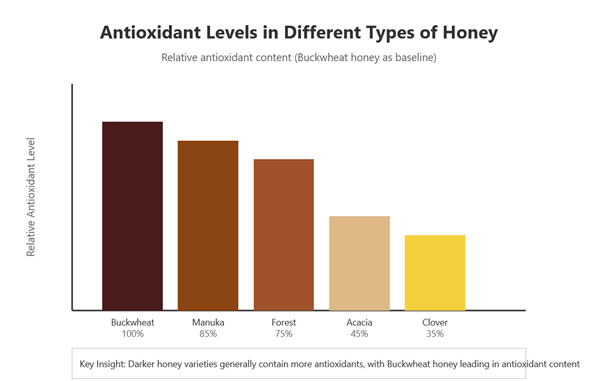

Antibacterial Properties
The Natural Defence Power of Honey
Your body's immune system has a powerful ally in natural immune boost honey. The antibacterial properties of raw honey, particularly in varieties like manuka and propolis-rich honey, provide a natural defence against harmful microorganisms.
Science Spotlight: Understanding Honey's Natural Defence Mechanisms
Hydrogen Peroxide Production: Raw honey naturally produces this antibacterial compound
Low pH Environment: Creates conditions where harmful bacteria can't thrive
High Sugar Concentration: Helps prevent microbial growth
Unique Plant Compounds: Provide additional protective benefits
Manuka Honey's Unique Power
While all raw honey offers immune support, manuka honey contains additional compounds that make it especially powerful:
MGO (Methylglyoxal): Unique to manuka honey
UMF™ Rating: Higher ratings indicate stronger antibacterial activity
DHA (Dihydroxyacetone): Converts to MGO over time
Practical Application:
Create Your Daily Immune Shield
Morning: 1 tsp manuka honey (UMF 10+) on an empty stomach
Afternoon: Raw honey + propolis spray for throat protection
Evening: Warm (not hot) honey and ginger tea for overnight immune support
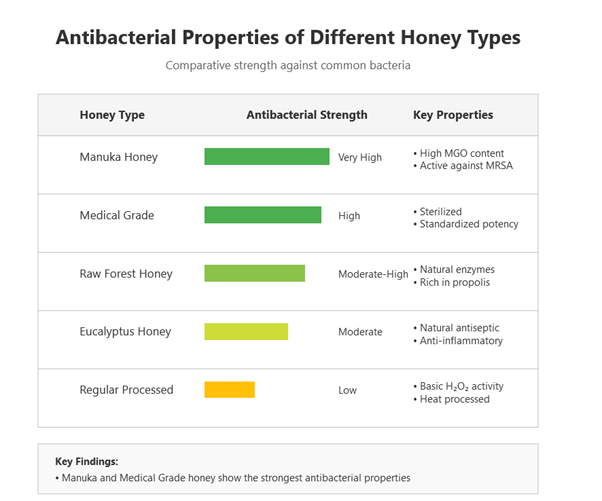

Natural Healing Benefits
From Nature to Wellness: Honey's Healing Properties
Natural immune boost honey doesn't just support your immune system - it actively promotes healing throughout your body. Here's how different honey varieties work their magic:
Respiratory Support
Research shows that raw honey's antibacterial and anti-inflammatory properties can ease sore throats and coughs.
Soothes throat irritation
Supports healthy mucus membranes
Calms coughs naturally
Research Note:
A 2023 study in the European Respiratory Journal found honey more effective than common cough medicines for upper respiratory symptoms.
"Honey's remarkable antimicrobial properties also make it a valuable natural treatment for wounds."
Digestive Wellness
Raw honey contains natural prebiotic fibre that feeds good bacteria in our gut, helping our digestive system. Studies show it can:
Promote healthy gut flora
Support nutrient absorption
Calm digestive discomfort
Some honeys, like oregano honey, are believed to exhibit therapeutic properties against Helicobacter pylori, a bacterium that causes stomach ulcers.
Honey Type Unique Characteristics
Tupelo Honey Mild, delicate flavor with a light amber color
Sourwood Honey Distinctive, slightly acidic taste with a dark amber hue
Mad Honey Contains grayanotoxins, which can cause temporary paralysis if consumed in excess
Whipped Honey Creamy, spreadable texture due to air incorporation during processing
"Honey is not just a sweetener - it's a versatile natural remedy with a wide range of health benefits."
Expert Tip Box:
"The prebiotic properties of raw honey make it an excellent support for gut health, which is crucial for immune function. About 70% of your immune system resides in your gut." - Dr. Michael Chen, Gastroenterologist
Healing Applications Guide:
1. For Respiratory Support:
Mix 1 tbsp raw honey with warm water and lemon
Add a pinch of bee pollen for extra immune support
2. For Digestive Health:
Take 1 tsp raw honey before meals
Combine with ginger for enhanced benefits
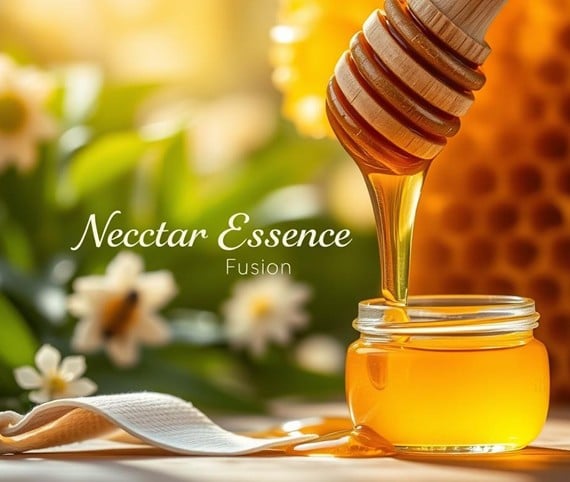

Brain & Cognitive Health
Sweet Science: Honey's Impact on Brain Health
The connection between immune health and cognitive function is well-established. Honey as a natural immune booster is believed to support cognitive health. Recent research reveals how honey's antioxidants protect and enhance brain function. It is believed that it may help with memory, reduce stress, and lower the risk of brain diseases.
Cognitive Protection Properties
Reduces oxidative stress in brain cells
Supports memory and learning
Promotes better sleep quality
Research Highlight:
A groundbreaking 2023 study in Frontiers in Nutrition found that regular consumption of raw honey may help:
Improve memory by up to 15%
Reduce inflammatory markers in the brain
Support cognitive longevity
Practical Brain-Boosting Honey Applications:
Morning Brain Boost:
1 tbsp raw honey
1 tsp bee pollen
Optional: Add to coffee or tea
Evening Brain Support:
1 tsp manuka honey
Warm golden milk
Promotes restful sleep and brain recovery


Daily Honey Routines
Your Complete Natural Immune Boost Honey Protocol
1. Morning Immune Activation:
7:00 AM: 1 tsp manuka honey on empty stomach
8:00 AM: Honey-propolis throat spray
2. Midday Support:
12:00 PM: Raw honey + bee pollen energy boost
3:00 PM: Honey-infused herbal tea
3. Evening Wellness:
7:00 PM: Warm honey-turmeric milk
9:00 PM: Small amount of raw honey for stable blood sugar during sleep
Choosing and Storing Your Natural Immune Boost Honey
Ultimate Guide to Selecting and Storing Therapeutic Honey
Quality Matters: Your Selection Guide
When choosing honey for immune support, look for these key indicators:
"Raw" or "Unpasteurized" on the label
No added ingredients or sweeteners
Cloudy appearance (indicates natural pollen content)
Proper crystallization patterns
Honey Grading Guide:
Premium Grade (Best for Immune Support):
Raw, unfiltered honey
Manuka honey (UMF™ 10+ or MGO 263+)
Propolis-enriched varieties
Organic certification
Standard Grade (Good for Daily Use):
Pure honey without additives
Local raw honey
Basic filtered honey
Expert Storage Tips:
"Proper storage is crucial for maintaining honey's immune-boosting properties. Think of honey like a living supplement - it needs the right conditions to maintain its therapeutic properties." - Dr. Lisa Martinez, Food Science Researcher
Storage Do's and Don'ts:
✓ Do:
Store between 21-30°C (70-86°F)
Keep in dark glass or ceramic containers
Seal tightly after each use
✗ Don't:
Expose to direct sunlight
Store near heat sources
Use metal containers
Refrigerate
Seasonal Usage Guide
Maximizing Honey's Benefits Year-Round
Spring:
Combine with local bee pollen for seasonal allergies
Morning immune boost with raw honey and lemon
Use manuka honey for spring cleaning detox
Summer:
Create cooling honey-herb infusions
Mix with coconut water for electrolyte balance
Use as a natural energy booster
Fall:
Increase propolis intake for immune preparation
Mix with ginger and turmeric for warming effects
Start using higher UMF™ manuka honey
Winter:
Maximum immune support with daily manuka honey
Create honey-based throat soothers
Use in warm beverages for respiratory support
Natural Immune Boost Honey Recipe Collection
Immune-Boosting Honey Recipes
Daily Immune Tonic:
1 tbsp raw honey
1 tsp bee propolis
¼ tsp bee pollen
Pinch of cinnamon
Mix in warm water, consume on empty stomach
Natural Energy Drink:
2 tsp raw honey
1 cup coconut water
½ lemon, juiced
Small piece of ginger
Blend and enjoy pre-workout
Respiratory Support Tea:
1 tbsp manuka honey
Fresh thyme sprigs
Slice of lemon
Hot water
Steep and sip when needed
Night Immune Support:
1 tsp raw honey
1 cup warm plant-based milk
¼ tsp turmeric
Pinch of black pepper
Mix and enjoy before bed
Making the most of your honey.
Maximizing Your Natural Immune Support Journey
Getting Started:
1. Begin with raw honey: 1 tsp each morning
2. Add manuka honey after 1 week
3. Gradually incorporate bee pollen and propolis
4. Keep a wellness journal to track benefits
Shopping Checklist:
□ Raw, unfiltered honey
□ Manuka honey (UMF™ 10+)
□ Bee propolis supplement
□ Bee pollen granules
□ Dark glass storage container
Final Expert Tip:
"Remember that consistency is key with natural immune support. Make honey part of your daily wellness routine rather than using it only when you feel unwell." - Dr. James Wilson, Immunologist
Conclusion
Raw, unpasteurised honey is a natural product with many benefits. It has antioxidant and antimicrobial properties. These can help with digestive, respiratory, and cognitive health. Adding raw honey to your daily routine can boost your well-being. It strengthens your body's natural defenses.
When picking raw honey, choose products that are minimally processed. This helps keep their nutrients and compounds intact. Raw honey is a great natural immune booster and health supplement. Raw honey's high antioxidant and antimicrobial content makes it great for health. Using it daily can help support your overall health and wellness.
Frequently asked questions
What is the difference between raw and regular honey?
Raw honey keeps more of its good stuff, like nutrients and antimicrobial powers. Regular honey loses some of these benefits because of elevated temperatures (up to 680C) during processing.
What are the health benefits of raw honey?
Raw honey is full of antioxidants and fights off germs and fungi. It's good for your gut, breathing, brain, and thinking. It's a natural way to boost your health.
How can raw honey help with wound healing?
Honey types like manuka and medical-grade can stop bacteria and help wounds heal. But, don't use store-bought honey on cuts or wounds without a doctor's advice.
How can raw honey support digestive and respiratory health?
Raw honey's antibacterial and anti-inflammatory effects can soothe sore throats and coughs. It might also help your gut and fight off colds better than other treatments.
What should I look for when choosing and storing raw honey?
Choose honey that says "raw" on the label. It means it hasn't been processed or filtered. Keep it in a sealed container, away from light and heat. If it crystallises, it's safe, but you can warm it to melt the crystals.
How much honey should I take daily for immune support?
For optimal immune support, consume 1-3 tablespoons of raw honey daily, preferably divided between morning and evening doses. Start with 1 tablespoon and gradually increase based on your needs.
Can honey really boost my immune system?
Yes, research confirms that raw honey's combination of antioxidants, enzymes, and natural compounds supports immune function through multiple pathways, including:
Enhancing white blood cell activity
Supporting gut health
Providing anti-inflammatory compounds
Which type of honey is best for immune support?
While all raw honey offers benefits, manuka honey with UMF™ 10+ or higher provides the strongest immune support, followed by propolis-enriched honey and local raw honey.
